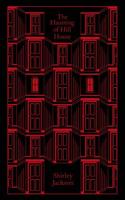Publisher's Synopsis
Seduction and murder, beauty as a mortal danger, individual talent as a cursed part, to put it in Bataille's words, are the constants in Nothomb's work since his surprising first novel, Murderer's Hygiene (1992); Since then he has continued to have a central place in current literature written in Europe. Without abandoning those obsessions, even deepening them, this Dictionary of proper names shows how two surprising capacities are combined in Nothomb today: that of inventing stories at a speed almost faster than any writing could follow and that of having complete control of his material, as if each of his novels were a piece within the vast world that his work is destined to represent, like a Human Comedy of the 21st century; that is to say: fragmentary, feminine, without greater certainties than its ambiguities. A narrative world that, on the other hand, lacks parallel in the literature of the moment. Here it is about a girl called Plectrude - proper names are not without meaning in this intense fable -, born in prison to a nineteen-year-old mother who murdered her husband, and father of the girl, weeks before giving birth. light. Plectrude's fate will be, to a large extent, one of a struggle against the compulsion to repeat the cursed fate of her mother.










